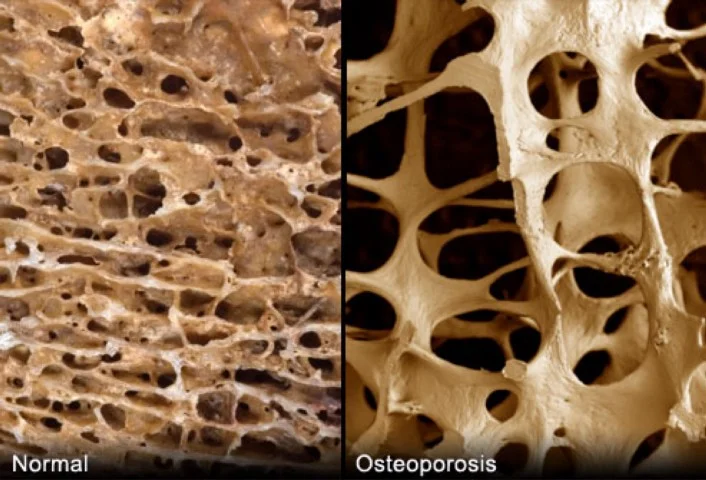Osteoporosis
/Osteoporosis, or bone loss, affects people of all different ages and backgrounds. Risks factors include:
being female: Osteoporosis is more common in women than in men—about 80% of cases affect women.
being older: As we age, our bones naturally lose some density and become weaker. That doesn't mean that every older person gets osteoporosis, but it does mean your chances of developing the disease increase with age.
having a family history of osteoporosis: Studies show that if either of your parents had osteoporosis, then you are more likely to get it, too.
having a history of broken bones: Even if you've only had one broken bone, it will increase your risk of developing osteoporosis.
having a small, thin frame: People with lighter, thinner bones are more prone to osteoporosis. However, having a larger frame is not a defense against the disease.
being white or of Asian or Latino heritage: Osteoporosis affects all races and ethnicities, but if you are white or of Asian or Latino descent, you have a higher risk.
menopause: Menopause is marked by a steep drop in estrogen, which is a female sex hormone that protects bones. When estrogen levels decrease, bones may lose density and become prone to fractures.
Eating a diet low in calcium and vitamin D: It's important to eat a diet rich in calcium and vitamin D because these nutrients work together to promote healthy bone growth and maintenance. Calcium promotes healthy bones, and vitamin D helps your body effectively absorb calcium.
Being inactive: Exercise helps ward off osteoporosis by strengthening your bones, just as it strengthens your muscles. Strong bones are less likely to fracture.
Smoking: If you smoke, your risk for osteoporosis increases for a number of reasons. First, the chemicals found in cigarettes interfere with the normal functioning of your bone cells. Also, smoking may inhibit proper calcium absorption. And finally, smoking prevents estrogen in women from protecting their bones as it should.
Consuming large amounts of alcohol: Heavy alcohol consumption inhibits normal bone formation by impacting your body's calcium supply. If you consume alcohol, do so in moderation (less than 2 drinks a day).
Medications: Certain medications, particularly steroids, can weaken your bones. In most cases, you have to use these medications for a long time and in very high doses for them to become a threat to your bones. That's not to say that these medications are bad for you—they may be essential to treat your respective condition. Don't stop any treatment or alter the dosage without first consulting your doctor.

